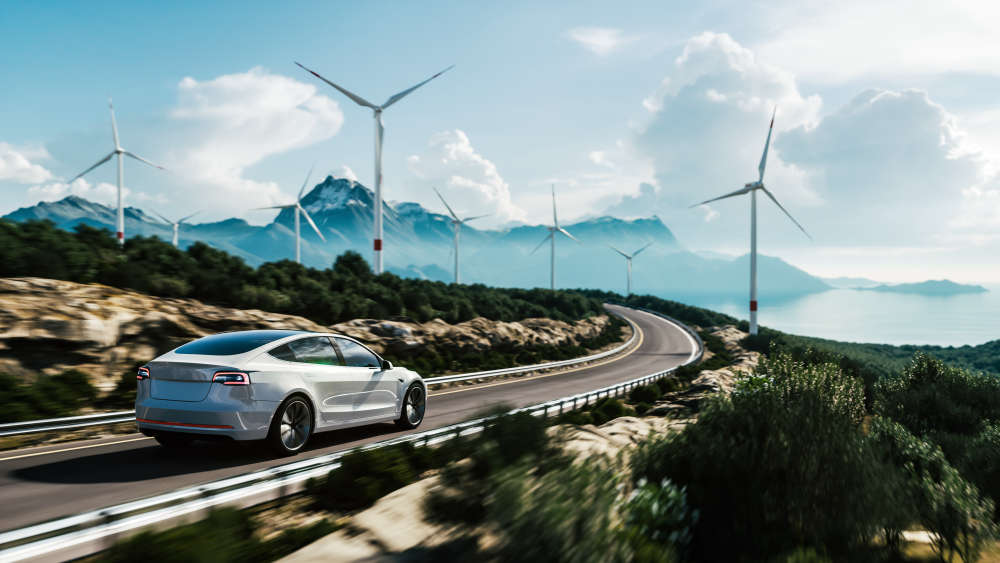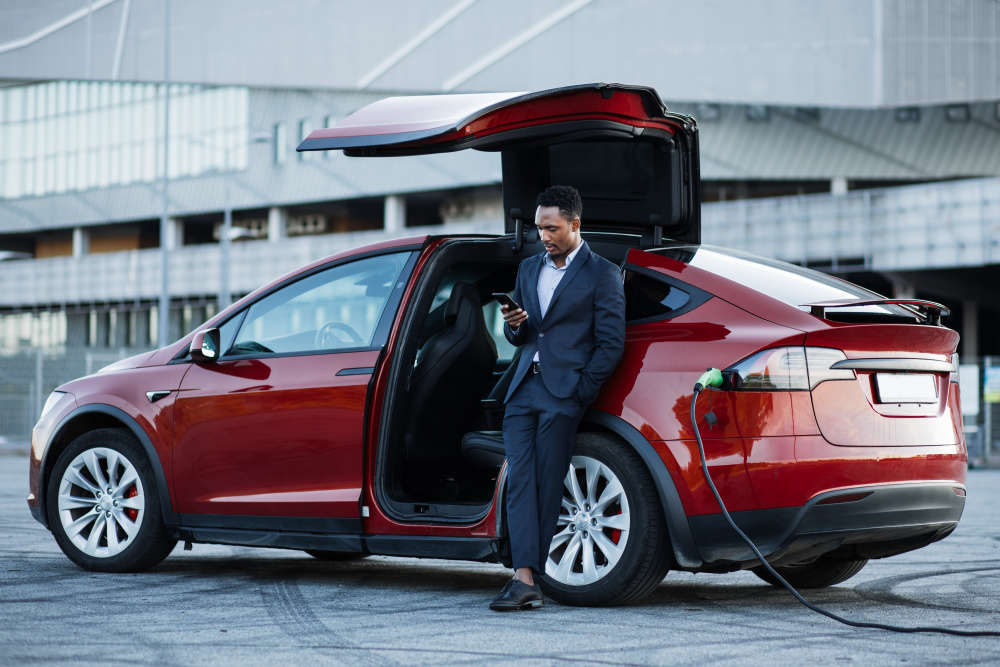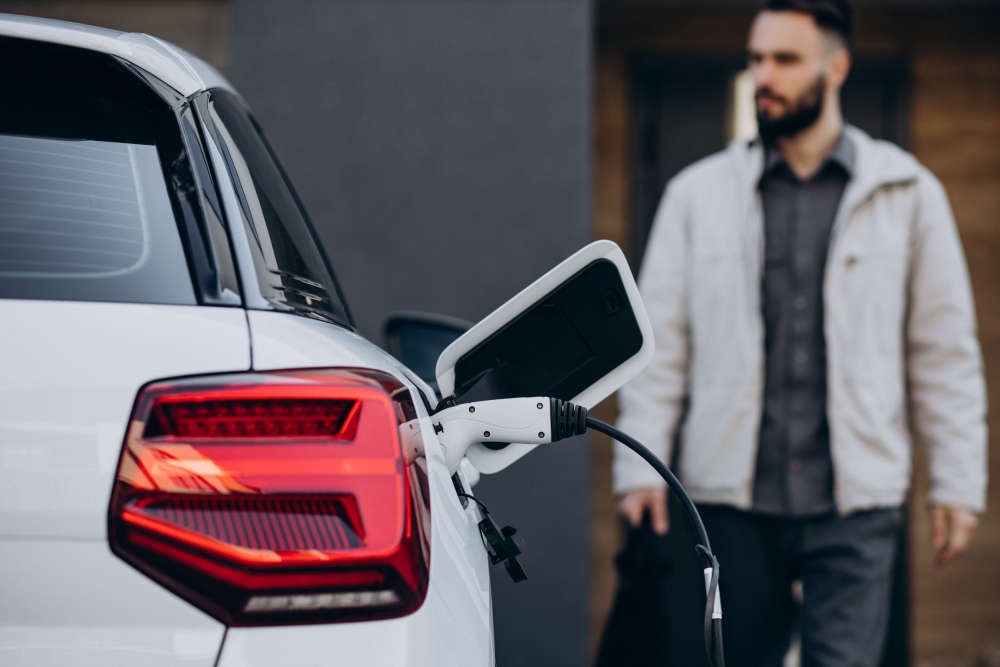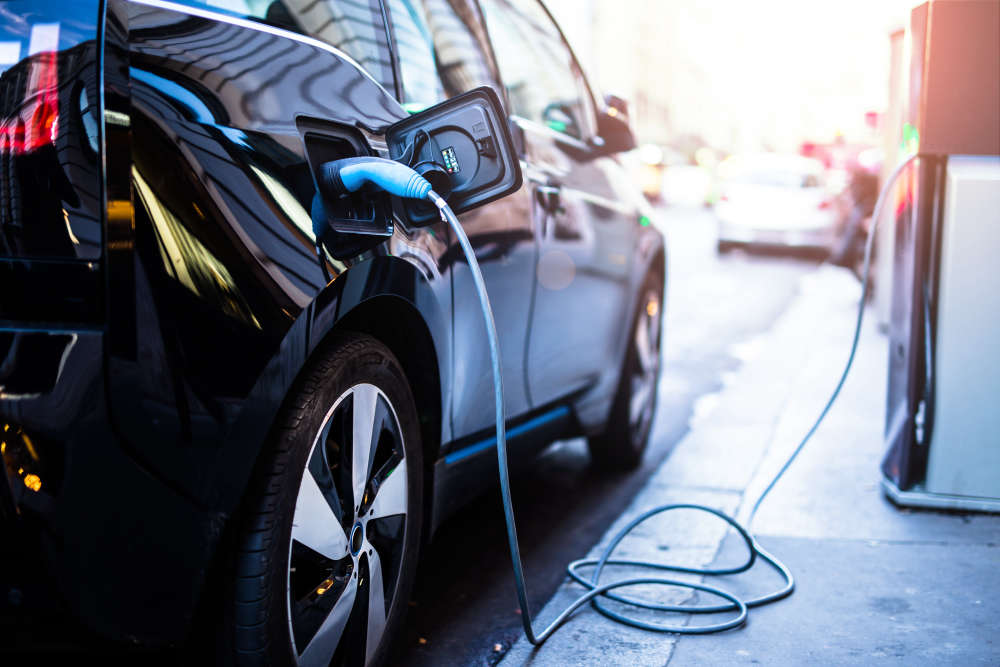
Electric cars, also known as electric vehicles (EVs), are automobiles that are powered by one or more electric motors instead of a traditional internal combustion engine. Here are some key things you should know about electric cars.
Without stating the obvious, electric cars are powered by electricity, as opposed to diesel or petrol. So what exactly do you need to know? What are the pros and cons? Should you be looking at buying an electric car this year?
Electric cars are powered by batteries that store electricity. The batteries are charged by plugging the car into an electrical outlet or charging station.

Pros to buying an electric car:
1. They are environmentally friendly
Electric cars emit no pollutants, meaning they don't produce the harmful emissions that contribute to air pollution and climate change, like traditional fuel does.
2. They have lower operating costs
Electric cars have lower operating costs compared to traditional fuel-powered cars. They require less maintenance, and the cost of electricity is typically cheaper than petrol or diesel.
3. They offer a quieter and smoother ride
Electric cars are known for their quiet and smooth ride, as they don't have the vibrations and noise associated with a traditional internal combustion engine that you would find in a petrol or diesel car.
4. They are becoming more popular
As electric cars become more affordable and more charging stations are built, their popularity is increasing. Many car manufacturers are investing in electric car technology, and governments around the world are promoting the adoption of electric cars to reduce greenhouse gas emissions.
Cons to buying an electric car:
1.They have limited range
The range of electric cars varies depending on the model, but most have a limited range, compared to their fuel-powered counterparts. Having said this, the range is improving with advancements in battery technology.
2. They can be more expensive
Electric cars tend to be more expensive than traditional fuel-powered cars. However, prices are coming down, and there are incentives available for buying an electric car.

3. Longer charging times
Charging an electric car takes longer than filling up a tank of fuel. Even with fast-charging options, it can take anywhere from 30 minutes to several hours to fully charge the battery. This is something to consider if you don't have a charging station at home.
4. Limited charging infrastructure
While the number of charging stations is growing, they are not yet as widespread as fuel stations. This can make it difficult to find a charging station, especially in rural or remote areas.
5. Limited model options
While more electric car models are coming onto the market, the selection is still more limited than traditional fuel-powered cars. This may make it harder to find the right car for your needs.
6. Dependence on electricity
Electric cars are reliant on electricity, so if there is a power outage or if the electrical grid is down, you may not be able to charge your car.
7. Environmental concerns
While electric cars emit no exhaust emissions, the production and disposal of batteries and other components can have environmental impacts. It is important to consider the full life cycle of an electric car when assessing its environmental impact.


 Home Style: Colourful New Life
Home Style: Colourful New Life
 Money Matters: Release Reality
Money Matters: Release Reality
 World Listening Day 2024: Learning to Listen to our Environment
World Listening Day 2024: Learning to Listen to our Environment
 Spotlight Events: What's On in July 2024
Spotlight Events: What's On in July 2024
 RSPCA Celebrates 200 Years
RSPCA Celebrates 200 Years
 Be Well, Move Happy: Learning a New Skill and Water Sports
Be Well, Move Happy: Learning a New Skill and Water Sports
 10 Ideas for a Screen-Free Summer
10 Ideas for a Screen-Free Summer
 Home Style: Bold Type
Home Style: Bold Type
 What to Watch in July 2024
What to Watch in July 2024
 The Exciting Appeal of the Beach Holiday
The Exciting Appeal of the Beach Holiday
 "I quite like to end up with a setlist that involves a catalogue of human misery..." Nish Kumar on his return to stand-up comedy
"I quite like to end up with a setlist that involves a catalogue of human misery..." Nish Kumar on his return to stand-up comedy
 Money Matters: The Revenue Generation
Money Matters: The Revenue Generation
 Home Style: A Better Way of Life
Home Style: A Better Way of Life
 Weddings: The Food of Love
Weddings: The Food of Love
 Vino, Vidi, Vici: The Vineyards, Breweries & Distilleries of Sussex
Vino, Vidi, Vici: The Vineyards, Breweries & Distilleries of Sussex
 Homes Extra: Digging a Design
Homes Extra: Digging a Design
 Listening to Nature: Meet the people behind the Ashdown Forest podcast
Listening to Nature: Meet the people behind the Ashdown Forest podcast
 Home Style: Tales from the Mill
Home Style: Tales from the Mill
 SPECIAL OFFER: General Admission Tickets To The Al Shira’aa Hickstead Derby Meeting
SPECIAL OFFER: General Admission Tickets To The Al Shira’aa Hickstead Derby Meeting
 A Gourmet Escape on the Eurostar: London to Amsterdam with Culinary Delights in Almere
A Gourmet Escape on the Eurostar: London to Amsterdam with Culinary Delights in Almere